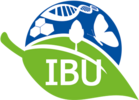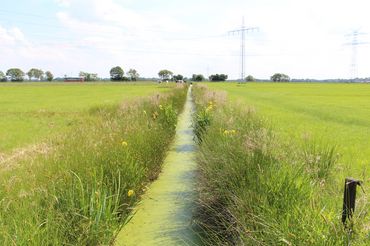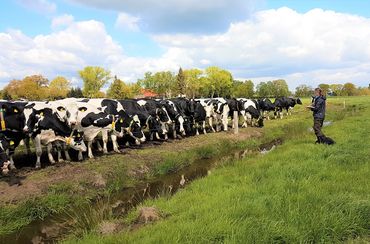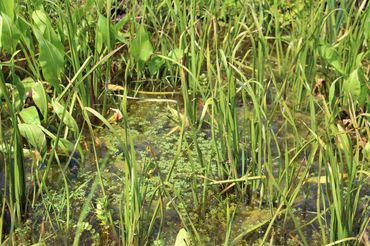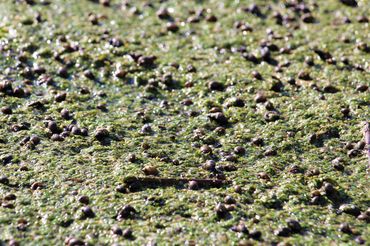Contact
Address
Office
Waterbuddies
Waterbuddies
Entwicklung und Bewertung von Maßnahmen zur Reduzierung von Närstoffeinträgen in Entwässeurngssysteme norddeutscher Grünlandgräben
November 2018 - July 2023
Financed by the Federal Ministry of Food and Agriculture
Description
The joint project Waterbuddies aims to reduce the nutrient load of surface waters. It pursues a transdisciplinary and transformative approach, which requires the joint participation and close cooperation of various actors and experts (six subprojects/modules). The project analyses nutrient flows at field and farm level as well as the effects of different sites (marshland, moorland and groundwater-influenced mineral soils), management and seasonal variability on said nutrient flows in order to characterise dominant paths of nutrient losses and ecological effects. On this basis, site-specific differences in nutrient concentrations in their interactions between economic, hydrological and pedological processes can be identified, which influence the nutrient quality of the ditches. Only this knowledge makes it possible to use the right levers to derive concrete, practicable and effective recommendations for the management of grassland sites. These recommendations should be suitable for ensuring the low-loss circulation of nutrients (N and P) within the farming cycles in order to achieve a significant reduction of nutrient pollution and an improvement of the ecological potential of grassland ditches. Our research focus within the project lies on the analysis of the aquatic ecological effects of management-related nutrient loads.
Abstract
Ditches form a dense network of aquatic systems in the lowlands. Originally ditches were created as an element of water management. Today it is evident that they function as substitute habitats for a variety of animal and plant species. However, ditches are usually exposed to multiple stress factors. Increased plant biomass production can quickly lead to siltation of the system when eutrophication of ditches occurs due to soil and nutrient inputs from adjacent farmland. More intensive ditch maintenance to ensure optimized land management is opposed to current efforts to minimize ditch pollution. Unlike streams, ditches lack the ability to assess systematically ecological effects of different (nutrient) influences and differentiate them from management-independent factors. However, this differentiation is essential to make efficient recommendations to agricultural stakeholders.
The main objectives of our research are
(1) the ecological characterization of the effects of different fertilization on the macroinvertebrate community in ditches,
(2) the development of a concept for the evaluation of the ecologically relevant fertilization effects as well as
(3) the development of a method standard that allows monitoring of the (changed) nutrient situation.
The starting point is the assumption that nutrient-related differences in ditch vegetation – as an essential substrate for colonization – cause systematic differences in the macroinvertebrate fauna. 47 grassland ditches in the catchment area of the river Jade (Lower Saxony, Germany) are investigated within the project. With marshland, moorland and groundwater-influenced mineral soils the main soil types of the coastal regions of Lower Saxony are represented in the project area. In all trenches the colonization by macroinvertebrates is systematically recorded.
Project partners
Georg-August-University, Institute of Grassland Science, Göttingen
Carl von Ossietzky University, Research Group Soil Science, Oldenburg
Landwirtschaftskammer Niedersachsen, Oldenburg
Grünlandzentrum Niedersachsen / Bremen e.V., Ovelgönne

